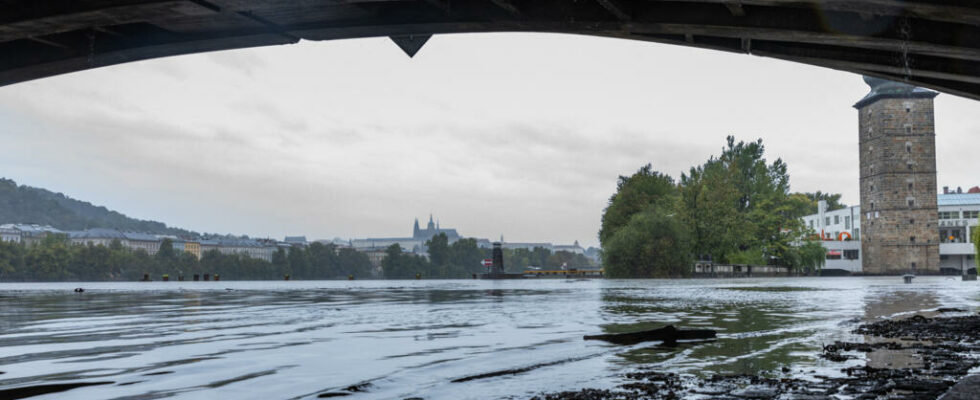Central and Eastern Europe continues to suffer the consequences of Storm Boris and the torrential rains that have fallen in recent days. Several countries have already confirmed a heavy human and material toll. In the Czech Republic, the situation is improving in some regions, but the number of victims continues to rise, with three deaths already.
2 min
With our correspondent in Prague, Alexis Rosenzweig
The human toll has risen further in the Czech Republic, with three dead and around ten people still missing on Tuesday, September 17. While the situation is improving in the north-east of the country, the damage is already enormous, running into hundreds of millions of euros, according to the regional authorities of Moravia Silesia, the worst-hit area so far.
Now, the rivers of southern Bohemia are causing concern among the population of the towns near the German and Austrian borders. The maximum level of the Vltava and other rivers in the region is expected on Wednesday, September 18.
Firefighters continue in large numbers to help channel water or evacuate if necessary.
2,000 army soldiers are being deployed as reinforcements from today and prisoners have also contributed to helping the disaster areas, including filling hundreds of sandbags and helping to clean up everything that was piled up after the torrents of muddy water passed through.
Also readStorm Boris: Mass evacuations continue in central Europe, where anxiety remains
More than 60,000 homes without electricity
Although the weather situation seems to be improving in several places, the ground remains saturated and rivers are bursting their banks, leading the authorities to ask the population to exercise extreme caution. Just over 60,000 homes were still without electricity, mainly in the north-east of the Czech Republic.
Experts say the flood is the worst in this part of Europe since the 2002 floods that hit Prague, Dresden (in Germany) and Vienna (in Austria). Studies to determine whether it is linked to climate change are expected in the coming months, the International Federation of Red Cross and Red Crescent Societies (IFRC) said on Tuesday.
But “ When we look closely, we see that these kinds of events have increased in recent years. […] in a Europe that has warmed at a much higher rate than the rest of the world “, explained Andreas von Weissenberg, regional head of disasters, climate and crises, during the regular UN press briefing.
Also readStorm Boris, aggravated by climate change, devastates regions of Central and Eastern Europe
